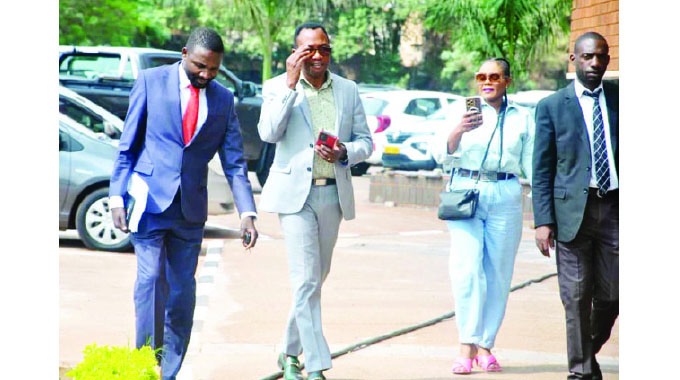Court upholds BIPPA farm acquisition
Daniel Nemukuyu Senior Court Reporter
The Supreme Court has confirmed Government’s compulsory acquisition of Frogmore Estate, a Mvurwi farm that was formerly owned by a German family despite the fact that it was covered under the Bilateral Investment Promotion and Protection Agreement between Zimbabwe and Germany. Agreements under BIPPA require that Government pay fair compensation in currency of the former owner’s choice for both land and improvements, but the court confirmed the acquisition without any compensation.
Some of the countries covered by BIPPA include Denmark, Germany, Belgium, Netherlands, Italy, Malaysia and Switzerland.
Deputy Chief Justice Luke Malaba, sitting with Justices Paddington Garwe and Antonia Guvava, on Monday allowed an appeal by new farmer Mr Lovemore Makunun’unu, who was contesting a High Court judgment ordering his eviction from the land despite having an offer letter under the land reform programme.
“Judgment of the court a quo is set aside and substituted with the following order:
“The claim is dismissed with costs,” ruled Justice Malaba.
This means Mr Makunun’nu has been declared the rightful owner of Lot 2 of Frogmore Estate, which was once owned by Forrester (Private) Limited.
A full judgment with detailed reasons for the decision in the case would be availed in due course.
Harare lawyer Mr Tapson Dzvetero represented Mr Makunun’unu, while Advocate Lewis Uriri acted for Forester Estate. After the court case, Mr Dzvetero interpreted the order to mean that country-to- country BIPPA agreements do not affect the legality of compulsory acquisition of land under the land reform programme.
“The ruling is a welcome and positive move in favour of beneficiaries of the land reform programme who were allocated offer letters in respect of farms covered under BIPPA,” he said.
“The agreement does not affect the legality of the acquisition of these properties in terms of the Constitution of Zimbabwe. Those beneficiaries remain entitled to their properties under the land reform programme.”
A Harare-based lawyer said the judgement meant that all land which is subject of a BIPPA was not protected from compulsory acquisition.
Justice Malaba, during the proceedings, held that the High Court had erroneously accepted that there had not been proper acquisition of the farm on the basis that the former owners were not compensated.
But the Supreme Court found that the High Court’s decision was wrong.
Adv Uriri’s bid to have the matter remitted back to the High Court after conceding to the invalidity of the BIPPA argument, hit a snag as the three-member bench decided to quash the High Court’s judgment.
Mr Dzvetero convinced the court that even if the former owner was not compensated, the property was deemed to have been properly acquired.
Facts of the matter were that Mr Makunun’unu moved onto subdivision 2 of Frogmore Estate on May 13 2007 by virtue of an offer letter issued to him by the Minister of State for National Security, Lands, Land Reform and Resettlement in the President’s Office on November 24 2006.
Forester (Pvt) Ltd issued eviction summons at the High Court against Mr Makunun’unu on the basis of the BIPPA agreement entered between German and Zimbabwe.
The firm argued that compensation had not been done and that the compulsory acquisition of the land was a nullity.
Justice Samuel Kudya, on July 29, 2009, granted the eviction order and ruled that Mr Makunun’unu should pay costs of the suit.
That prompted Mr Makunun’unu’s lawyer to successfully contest the judgment at the Supreme Court.





Comments